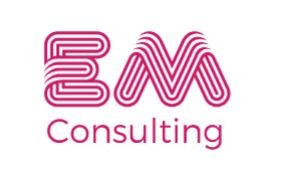
Relational Screening
My son wet the bed every night until he was 10 years old. When his friend group started having sleepovers, we had ongoing conversations about who he was going to tell and who he was not. He identified clues about his peers’ levels of trustworthiness. He felt he could tell a friend who had been nice to him when he was crying before. He decided he wouldn’t tell another friend who he had observed talking poorly about another peer. Once, he even ranked his peer group for me from most trustworthy to least trustworthy, based on some very minute and subtle behaviors.

We all engage in this process of assessing the trustworthiness of others. We make rapid, sometimes unconscious, decisions about who we can disclose to safely and what we are comfortable disclosing. When asked if we are married, we might not share that we are newly divorced if the person asking us doesn’t make eye contact, interrupts us, or checks their phone during the conversation. We remember these cues about trustworthiness too. For example, we might tell our doctor that our 12-month-old is off the bottle, even though he isn’t because it’s the same doctor who told us at the last visit that we shouldn’t have our baby sleep with us in the bed while looking down at his files.
Okay, that last one was me…and I’m not alone. Research indicates the majority of us (61-81% in one study) withhold some important health information from our care team and that one of the primary reasons we do this is to avoid judgment. In some ways, this isn’t necessarily a problem. When it comes to our personal lives and health, we get to decide who we tell and what we tell. When we decide not to share, it is often because we have picked up on something that indicates we would be judged for doing so. In that sense, in the moment, we make a wise decision to protect ourselves.
Still, there are real consequences if our health systems, clinic environments, or interpersonal ways of interacting are barriers to patients feeling comfortable with sharing openly. Over 85% of the information needed for accurate diagnosis and treatment recommendations comes from self-disclosures. We also know that the process of self-disclosure, when met with acceptance and empathy, can be healing all by itself.
We now routinely ask patients about things that are increasingly personal and even historically stigmatized- substance use, mental health symptoms, a trauma in childhood, intimate partner violence and more. For this reason, it is more important now than ever to understand how we can ensure our patients feel comfortable sharing with us when we ask these questions.
Relational Screening means developing a relationship with patients as people, before engaging them in a transactional exchange, such as closed-question, agenda-driven, screening. We can use names, both ours and theirs, and ask about their day. We can purposely use humor, genuine compliments or other connecting strategies to engage with them as fellow humans before starting the screening process (saying something like, “I love your necklace!” Or “How is your daughter doing?”). We can focus on normalizing one’s circumstances (one medical assistant I work with always says, “I’ve got lots of stuff. We all have stuff”), acknowledging the difficulty of some questions (“I know, right? These questions are super personal.”), and most importantly, identifying their strengths (highlighting, “I’m so impressed with your openness. I can hear how much effort you put toward being a good mom” or “I can hear how much you care about your health.”). We can conclude by showing appreciation for what they have just said, even with a brief “thank you for sharing this with us”.
All these strategies are so simple and… not necessarily easy. Our health and social systems are often not set up to be supportive of relational screening with time pressures, EHR checkboxes, and often minimal resourcing for support staff. Engaging with patients in conversational, empathic screening is actually a radical act, in that it mitigates power differentials and prioritizes relationships. For all of you out there that are engaging in relational screening yourselves (and/or supporting staff at your organization in relational screening practices), you are doing incredibly important work!
I’d love to hear your experiences, barriers and strategies in relational screening practices. You can reply to this email, or email me at: elizabeth@emorrisonconsulting.com.
For free resources on relational screening, such as workbooks, videos and conversation guides, you can go to and click on the Telehealth tab. There, you’ll find a guidebook for medical assistants and others who screen patients, another one for the providers who have followed up conversations after there is a positive screen and much more.
Wishing you all well as 2020 winds to a close,




